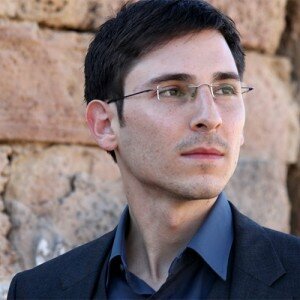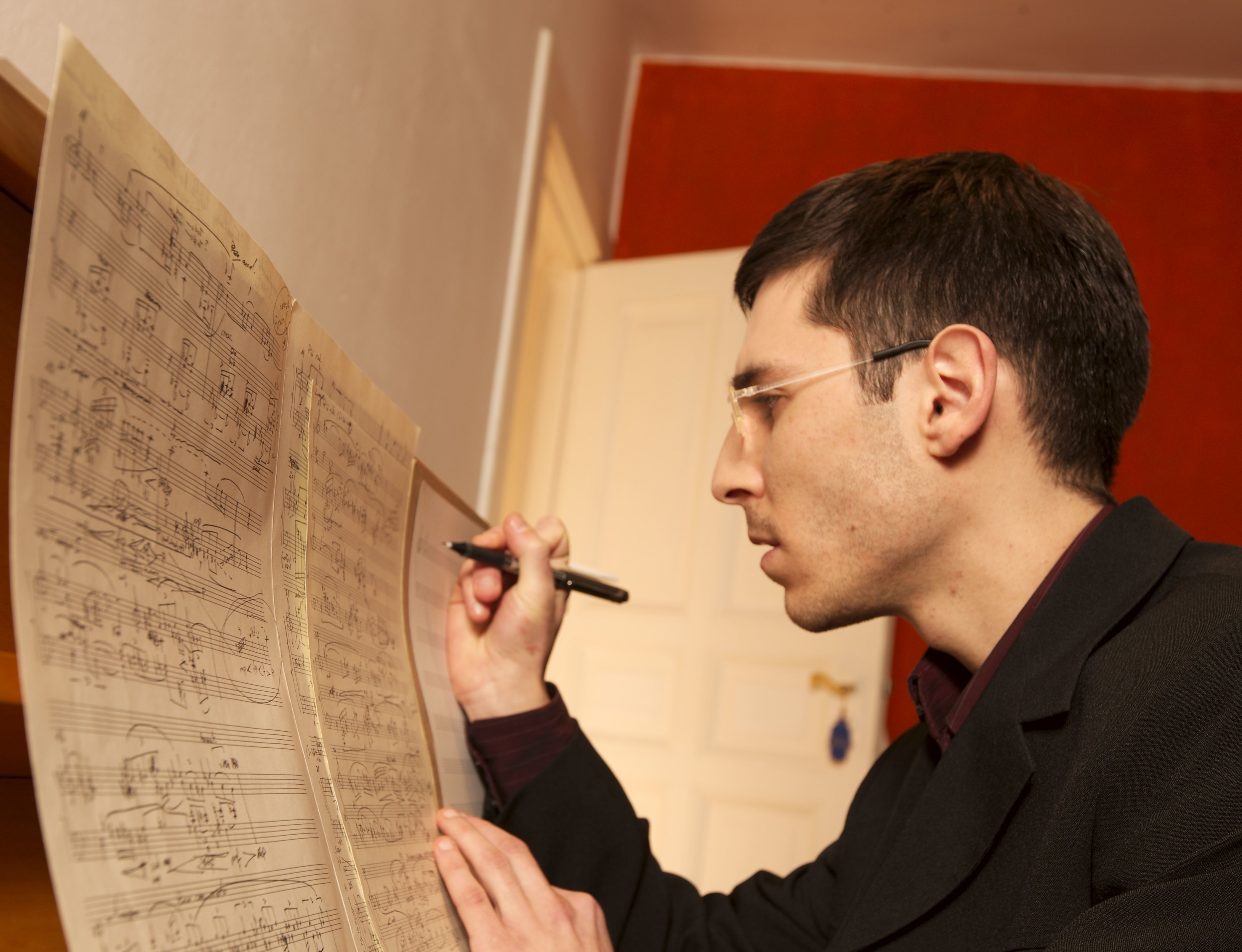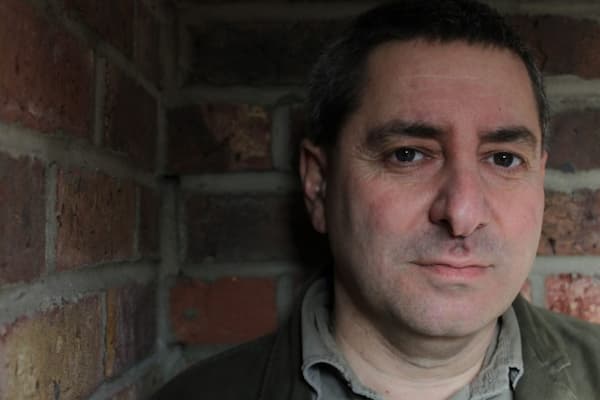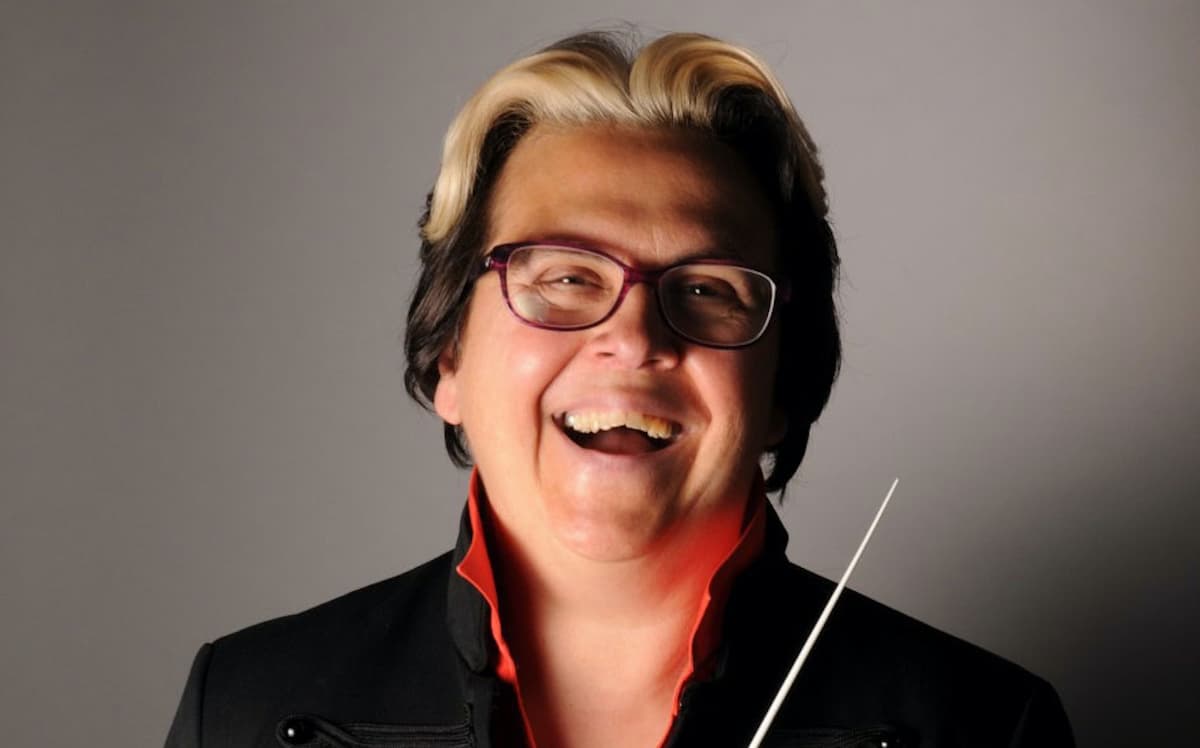
© Michal Macht
Below is our interview with Mr. Hochman.
IC is a unique festival in that it invites composers to work on compositions with performers to achieve an informed outcome. What work are you bringing and what do you expect, before the fact, to learn from the experience?
The IC is indeed a unique platform for composers and performers, and also for students and the public, to interact, to discuss and to have an artistic exchange that is quite rare in the common professional life. There is a lot of time to rehearse and reach a good artistic result, but also to communicate and get to know each other. These two things are of course interconnected in many ways, as music-making also belongs to us as social beings.
For me this is a great opportunity, not only to get to know a new and exciting place like Hong Kong but also to get into this creative dialogue, far from my usual work as a composer that I do in the privacy of my home in Berlin. The IC has two programs and I will take part in the first, between April 23rd and 29th.
As I get ready for traveling to Hong Kong, I am really looking forward to this working process, which has many partners. Among them are the artistic director of IC and a great composer, Bright Sheng, pianist Yael Manor – who is a guest artist to the IC like myself, the ensemble-in-residence, the Israeli Chamber Project, and its six extraordinary musicians and, of course the Composer Fellows, who were especially selected for the IC out of about 130 applications. I am also looking forward to the dialogue with the Composer Fellows and these days I study their works.
I will be brining my work Shedun Fini for clarinet, cello and piano and together with works by Bright Sheng, the Composer Fellows and one classical work of the 20th century, Copland’s Sextet, I expect having a rich and fruitful exchange between the composers, the performers, the students and the audience.
Hochman: Shedun Fini (BOVIARTrio)
What instructions were you given before the IC about what kind of work to bring?
I was actually not given any specific instructions about my work. I chose two chamber-music pieces that I thought would serve well in this context; pieces the musicians could play and that would be a good ground for discussion. Later Bright Sheng chose Shedun Fini to be presented, which I am very happy about. I believe the Composer Fellows received more particular instructions but overall it seems to me that the concept of the festival is to create as less restrictions as possible and put the focus on the creative process and having a meaningful exchange.
Have you spoken with any other IC participants from earlier years about their experience?
It might sound strange, but no. I approach the IC with excitement towards the new; to discover a new place and culture and having a good experience through what all of us have in common – the joy and challenges of music-making. In that respect, I would prefer creating my own impressions without prior knowledge of past participants’ experiences. At the same time, as this will be my first visit to Hong Kong, in addition to my general knowledge of the place, I do research more about its history, culture and customs.
You may be the first Israeli composer to be part of IC, and in work such as Nedudim, you use a particular Jewish-Arabic melody as your basis for the work, yet place it within a purely European context of a Fantasia / Concerto structure. Do your other works also exhibit this kind of Asian / European mix?
One important side to the work of composing, for me, is being in a constant search. This search contains many factors but like any sincere search, you never really know where you are going to end up with. In Nedudim I have related to a personal and cultural field, with specific musical implications, and to the non-musical theme of wanderings. At the same time I was drawn to express a certain perception of time, wide and non-linear in its essence. Naturally all music work with “time” but as it is such an elusive concept, I was drawn to continue dealing with its non-linear qualities, and also took them to an extreme in my orchestral piece Suspended Reality, as well as in my work for Shakuhachi and baroque violin Nocturnal Episode, which connect Zen Buddhist and Jewish music.
Musically, the merge between music of different cultures is for me an expression of our time. Nevertheless, I can’t say it was a conscious decision to create an Asian-Mediterranean-European mix. I would say that it is a natural result of my connection to classical European music, my biography and curiosity towards the special characteristic of music that derives from different cultures.
I am happy to be the first Israeli composer coming to IC and to be able to share some of my music and ideas about music, also from a cultural perspective. At the same time, I am looking forward to absorbing new concept and ideas. I know that pianist Yael Manor and members of the Israeli Chamber Project, who are also Israeli, share this view. I think that yet another beautiful side to music is that so much can be expressed, also on a cultural level, without uttering a single word.
Gilad Hochman: Nedudim (“wanderings”)
Fantasia-Concertante for mandolin and string orchestra
World Premiere: 04.04.2014, St James’s Piccadilly, London
In Shedun Fini, you’ve recast Schubert’s Unfinished Symphony as a clarinet trio, but put him in a different and modern milieu – it’s Schubert, but through a vision informed by genres that are very far away from Schubert’s classical world. Jazz, klezmer, and techno are all part of your vision of Schubert’s original. What inspired this work?
Shedun Fini was initially commissioned by the Israeli Schubertiade, which led me to creatively relate to Schubert’s music. I always loved listening to his works and analyze them but this was an opportunity for me to actually have a dialogue with his music. I decided to borrow from the symphonic medium and transforming it into chamber music, the Schubertiade’s medium, and so his Symphony in B minor, the Unfinished, served me as a deep source of inspiration and for musical materials. The title of the piece, Shedun Fini – metathesis of the word ‘Unfinished’ – somewhat express my attitude in this work, where Schubert’s musical sources are recomposed to create a whole new world. This new world is mine and belongs to the 21st century, and Jazz, Klezmer and Techno music are indeed a part of it. At the same time, the Symphony’s melodic, harmonic and structural ideas are really at the base of the trio and I think this piece is not only a tribute to Schubert and his music but also my small attempt to create a more direct link between his music, that always inspired mine, and my approach to music creation.
And then, of course, what do you do in your [copious / non-existent] spare time!
I rarely do the differentiation between spare-time and busy/working-time (?). I love to spend my time thinking, composing, playing the piano, solving Sudoku puzzles, working, going out to nature, visiting new places, staying at home, watching movies and especially spending time with close people. I find “time” to be a basic concept for all people, and I try to be conscious about different sides of it, and enjoy them in many ways.
Israeli Chamber Project | Gilad Hochman: Slightly Disturbed



